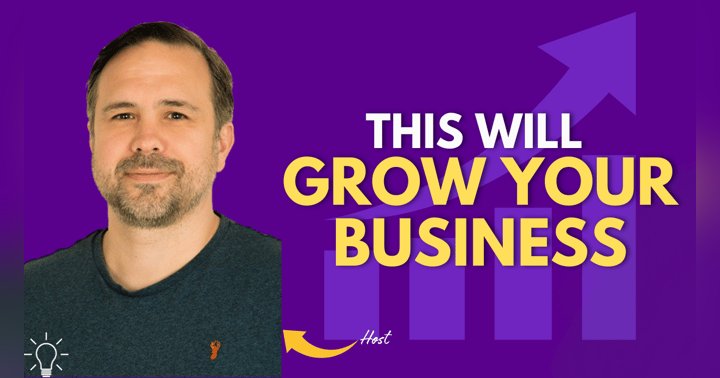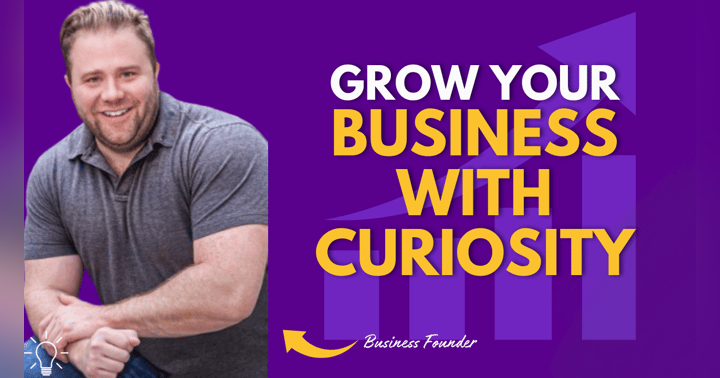Building a Personal Brand for Business Growth in 2025

Building Your Personal Brand in 2025: A Framework for Business Growth
In today's rapidly evolving digital landscape, the importance of a personal brand in driving business growth is paramount. As we approach 2025, understanding how to craft a personal brand that resonates with your audience is not merely beneficial—it's essential. Based on insights shared by Mark Hayward, this article explores the significant themes of building a personal brand that not only stands out but also sustains long-term business success.
Key Takeaways
- Trust Over Visibility: Building trust with your audience surpasses the need for mere visibility, ensuring potential clients choose you for your credibility.
- Portability and Evolution: A personal brand grows and adapts, allowing you to navigate industry shifts effectively while maintaining audience loyalty.
- Authenticity and Consistency: Authentic storytelling and consistent messaging across platforms form the backbone of a robust personal brand.
The Power of Personal Branding Over Company Branding
In the current business world, your personal brand often holds more value than the company brand itself. The very essence of a personal brand is the perception others have of you based on your online and offline presence. It's a collection of your values, message, and overall presence. "A personal brand isn't about being famous, it's about being recognizable and relevant in your space," asserts Hayward.
Building Trust and Emotional Connection
While a company might have a visually appealing logo or an intuitive website, Hayward emphasizes that people want to know "who is behind the business." Personal brands humanize your offerings and forge emotional connections with your audience. This connection is crucial because, as Hayward highlights, "trust beats visibility." A personal brand allows you to build a connection that outweighs mere exposure. It creates a narrative that sticks with people, making you the person they instinctively think about when they need solutions within your expertise.
Furthermore, with examples from tech giants like Elon Musk and Mark Zuckerberg, it demonstrates that even the most influential company figures' personal brands can eclipse the brands of the businesses they lead. This dynamic reveals the underestimated power of individuality in business leadership.
Crafting a Relatable and Memorable Personal Brand
Creating a personal brand requires strategic clarity and dedication to authenticity. Hayward offers a practical message formula: "I help [target audience] achieve [specific result] without [common frustration]." This simple yet effective strategy helps you convey your value proposition clearly and concisely.
Content Strategy and Platform Focus
Your content should be structured around recurring themes that resonate with your audience's interests and needs. Suggestions include industry insights, lessons from client work, and behind-the-scenes looks at your business operations. According to Hayward, consistency in these themes builds both recognition and trust.
Equally important is choosing the right platform. Not every platform will suit every personal brand, and spreading too thin can be detrimental. Hayward advises focusing on "one or two platforms where your audience already is." For example, LinkedIn is a staple for B2B-oriented professionals, while Instagram and TikTok cater to a younger, more visually-driven audience. This strategic choice ensures a more impactful presence.
Storytelling: The Heart of Personal Branding
Storytelling is a pivotal element in developing a robust personal brand. Sharing your story creates relatability and authenticity. "Your story is a valuable part of your brand," Hayward insists. He suggests that while wins are important, sharing "lessons, challenges, and pivotal moments" is what truly connects with people.
Visual and Verbal Consistency
Maintaining consistency in how you present your brand both visually and verbally is crucial. Visual elements like colors and fonts, as well as your tone and style of communication, contribute to how easily your brand is recognized and remembered. As Hayward says, "Visual consistency builds recognition. Verbal consistency builds familiarity."
Moreover, using proof like testimonials and case studies further solidifies your authority and expertise in your field. Social proof is a significant factor in building trust and driving client decisions, making it indispensable in branding.
Evolving Your Brand Intentionally
Your personal brand is not static—it evolves with your career and personal growth. Hayward points out that while your brand should adapt over time to reflect your development, it's important to "let [your audience] grow with you." This approach ensures that your brand narrative is dynamic and engaging, maintaining relevance in your ever-changing industry.
The insights provided illustrate a clear framework for action. Building a personal brand requires ongoing commitment to being authentic and strategically visible where it counts. The personal identity you build becomes a resilient asset, outlasting individual jobs, and adjusting to your evolving career path. With trusted authority and recognition rooted in individual presence, your personal brand doesn't just accompany your business—it propels it.






